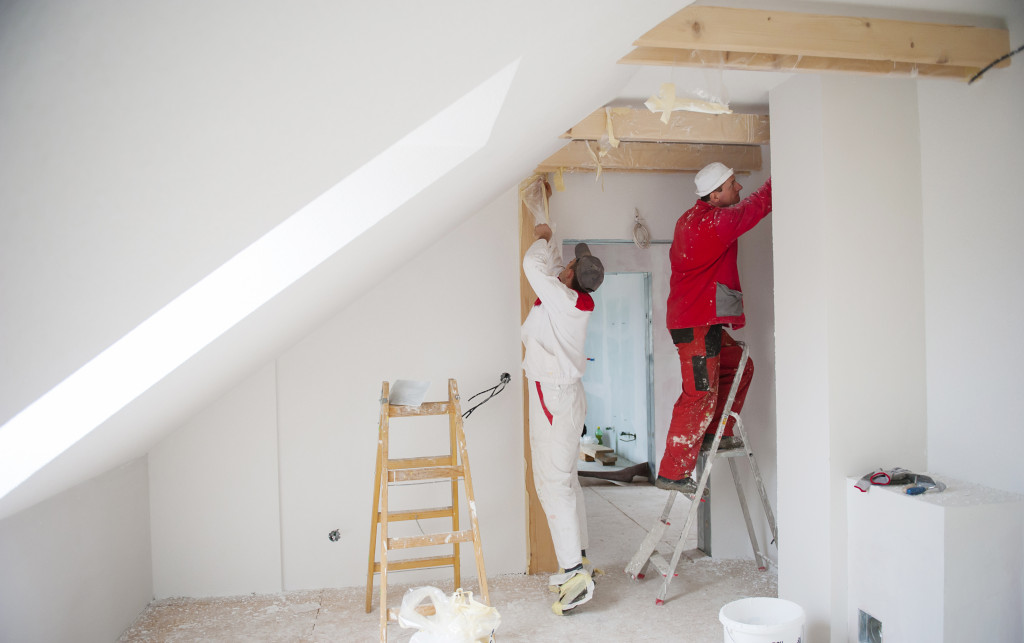- House flipping involves purchasing, renovating, and selling a home for a profit.
- It has the potential for substantial profits but also comes with considerable risks.
- The renovation process includes creating a detailed plan and hiring skilled contractors.
- Focus on critical areas such as the kitchen, bathrooms, and flooring.
- Stage the property to appeal to potential buyers before returning it to the market.
House flipping has become a buzzword in the entrepreneurial community in recent years. It is the art of buying, renovating, and reselling a house for profit. It may seem pretty straightforward – buy low, sell high – but there’s more to it than just that. This blog post will discuss everything you need about house flipping to determine if it’s a good business idea.
What is House Flipping?
House flipping refers to the process of purchasing a house, renovating it, and selling it for a profit. Typically, house flippers aim to buy real estate properties that are undervalued and need repairs.
They invest in repairs and renovations to make the house more attractive to potential buyers. Once they’re done with the repairs, they put the house back on the market at a higher price than the purchase price and the total cost of the repairs.
The Benefits of House Flipping
The most apparent benefit of house flipping is the potential for significant profits. If you purchase a home at a low price and sell it at a higher price, you can potentially make a sizeable profit. House flipping lets you be your boss and work on your terms. You also can choose your projects and build up a portfolio of renovated homes.
The Risks of House Flipping
Despite its potential for substantial profits, house flipping also comes with considerable risk. Flippers can encounter unexpected costs in the renovation process and face challenges in finding buyers when the time comes to sell. House flipping also requires a lot of work regarding the renovation and the business side of things, so it’s not for everyone.
The Renovation Process
The process of renovating a house for house flipping can be a daunting task for entrepreneurs and businesses who are new to the field. There are many things to consider before and during the renovation process, which can make it overwhelming.
Create a Detailed Renovation Plan

The next step in the renovation process is to create a detailed renovation plan. This plan should include a budget, timeline, and required materials and contractors. The renovation plan should be realistic and consider any unexpected setbacks or delays. It is also essential to ensure that the program aligns with the selling price of similar properties in the area to maximize your profits.
Hire Skilled Contractors
When renovating a property, you may need to hire contractors to complete specific tasks that you may not be skilled in. Hiring professional contractors who are reputable and experienced in the field is important.
One area that you need to pay particular attention to is roofing. The roof of a house plays a vital role in protecting the property from the elements, so you need to ensure that it’s done correctly. When looking for a roofing company, look for one with experience in metal roofing services. This type of material has become increasingly popular among homeowners due to its durability and aesthetic appeal. Opting for metal roofing is also an eco-friendly choice as the material is highly recyclable.
Focus on Key Areas
When renovating a property for house flipping, it is essential to focus on critical areas more likely to increase the property’s value. These include the kitchen, bathrooms, flooring, and lighting fixtures. Ensure the renovations are done to a high standard and use high-quality materials to appeal to potential buyers.
Stage the Property to Sell

Once the renovations are completed, the final step is to stage the property to appeal to potential buyers. This involves decluttering, rearranging furniture, and adding small touches such as plants and fresh flowers. Staging can help potential buyers envision themselves living in the property, leading to a faster sale at a higher price.
Final Thoughts
House flipping can be highly profitable if you have the skills, resources, and knowledge to succeed. While risks are involved, they can be mitigated with proper planning, research, and execution.
Before diving into the world of house flipping, you must do your homework and understand the ins and outs of the business. It’s not a get-rich-quick scheme, but with the right approach and mindset, it can be a successful and fulfilling career path for entrepreneurs and companies.

